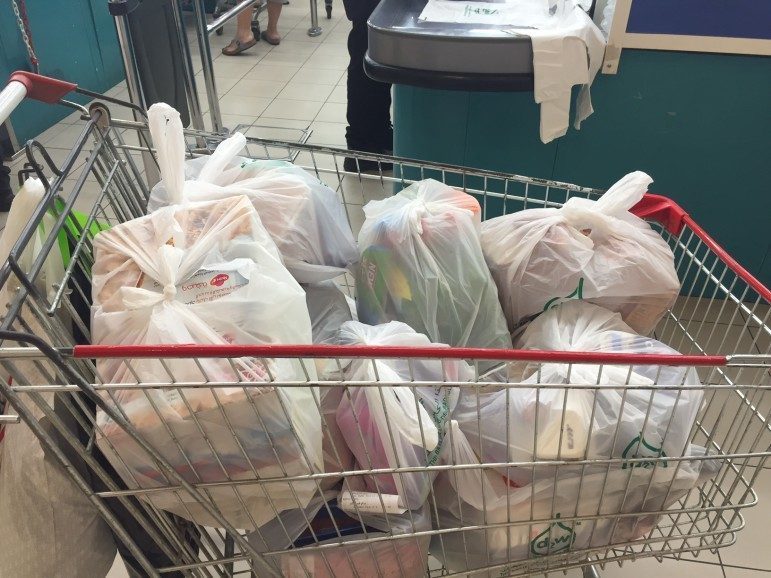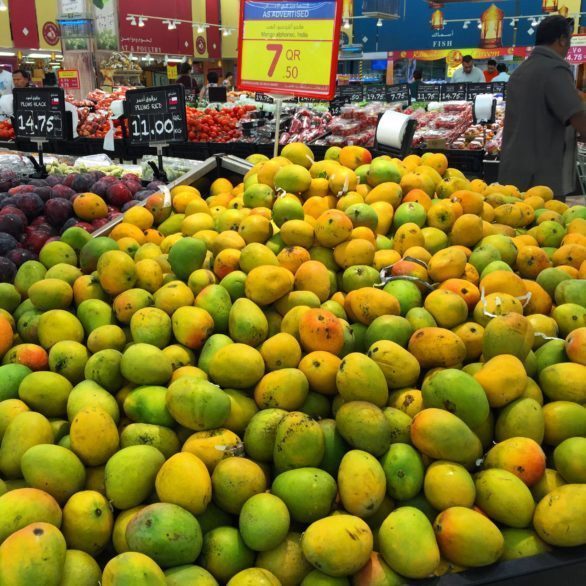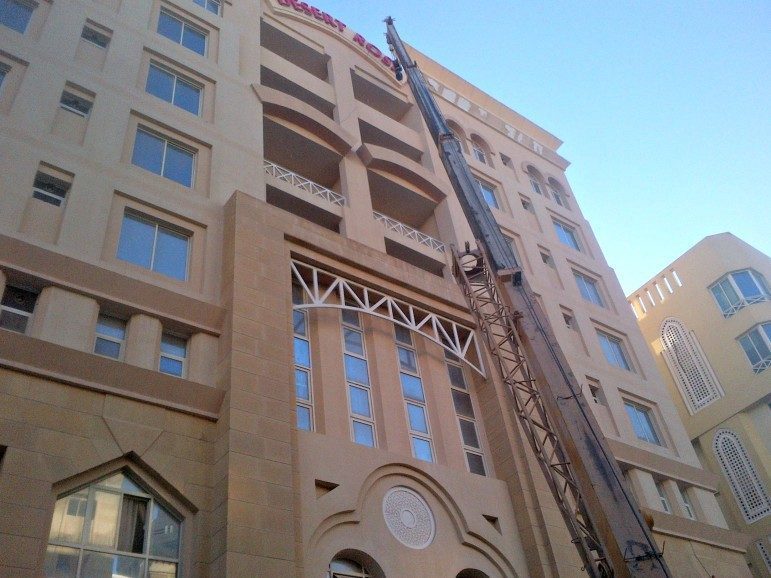By Doha News team

The cost of food and transport jumped last month amid an economic blockade against Qatar by its neighbors.
But the crisis barely affected the overall cost of living in the country during July, new government statistics show.
Goods and services for local residents were up just 0.2 percent in July compared to the same time last year, according to the Consumer Price Index (CPI).

That’s because spikes in food and transport were offset by declining costs in other areas, including housing and clothing.
Food costs jump
Food and drink rose 4.5 percent compared to July 2016, while transport costs shot up 7.5 percent year-on-year, the Ministry of Development, Planning and Statistics (MDPS) said yesterday.
The higher costs of food won’t come as a surprise to Qatar residents.
Many have complained about rising grocery prices since the neighboring Arab states began their blockade of Qatar in early June.

In particular, the cost of fresh produce and dairy goods, many of which were previously brought in from Saudi Arabia, appear to have seen the biggest jumps in price.
This is despite the Qatari government covering much of the additional cost of importing them from further away.
Notably, food costs are more controlled in Ramadan, which ended in late June.

This as well as the blockade could explain why June prices rose only by 2.4 percent compared to the same month last year.
Other areas that showed inflation in July include education costs, which rose 3 percent year-on-year; and healthcare, which went up 2.8 percent.
The cost of several other household expenditures fell last month however, offsetting any increases. They include:
- Clothing and footwear: Down 4.3 percent year-on-year;
- Water, housing, electricity and fuel: Down 3.6 percent;
- Recreation and culture: Down 2.5 percent;
- Miscellaneous goods and services: Down 2 percent;
- Communication costs: Down 1.1 percent;
- Restaurants and hotels: Down 0.8 percent; and
- Furniture and household equipment: Down 0.7 percent.
Meanwhile, tobacco costs remained flat, year-on-year.
So, although some of the prices stickers on goods at the supermarket give the impression that life in Qatar is more expensive, actually in many areas, it is cheaper than it was at the same time last year.
At the beginning of this year, the CPI stood at 1.2 percent — and that was the lowest it had been in the previous 12 months.
Rental drops
Increasingly expensive residential rental accommodation had been one of the main factors affecting living costs throughout 2015 and early 2016.

However, the residential rental market began softening in the latter part of last year, continuing through early 2017.
Real estate agents DTZ reported in May that slower population growth and increased supply in some housing areas have translated into rent reductions of around QR1,000 a month compared to the last quarter of 2016.
How has your budget changed in Qatar? Thoughts?






